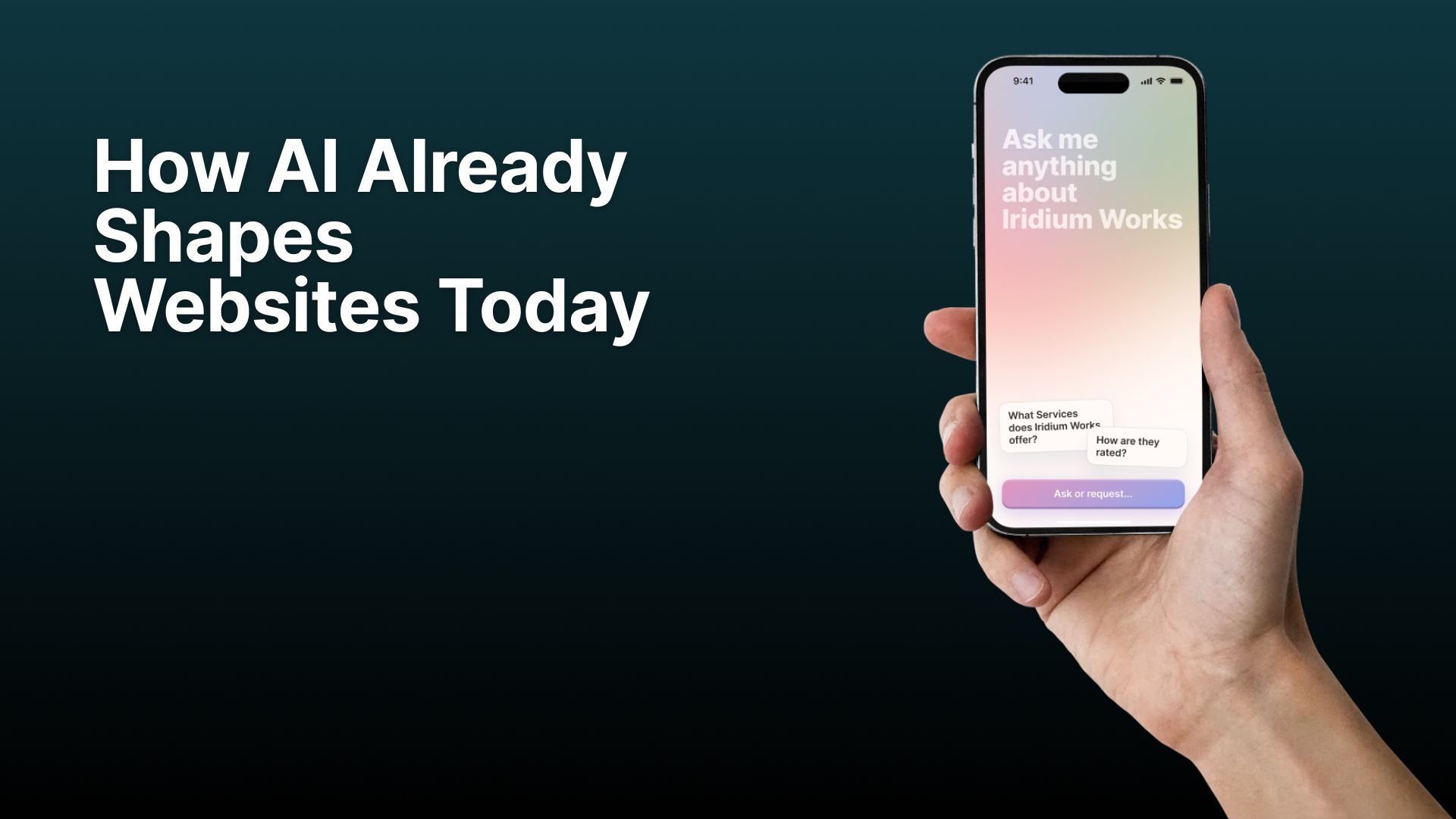
Christian Huff
CFO
AI is already transforming how websites are built and optimized - but true value comes from using it as an assistant for strategy, structure, and efficiency, not as a replacement for human creativity.

Artificial Intelligence is no longer a future topic — it already shapes how websites are created, used, and optimized.
But not every AI integration delivers real value. Some are pure show; others genuinely improve efficiency and user experience.
AI-powered chatbots can instantly answer standard questions, pre-qualify prospects, and pass qualified leads to the sales team — saving valuable time.
⚠️ However, a solid and up-to-date data foundation is essential.
Websites can dynamically adapt their content based on user behavior, industry, or region.
AI analyzes data and presents the most relevant information to each visitor.
AI tools compress images, remove sensitive metadata, or automatically generate thumbnails.
The result: faster loading times and improved security.
AI can suggest meta titles, descriptions, and keywords, check content quality, and improve internal linking — a huge time saver for editors and content teams.
AI helps make websites more accessible by generating image alt-texts, subtitles for videos, or text-to-speech functions — all at scale.
AI-generated texts often sound generic and lack authenticity.
For instance, a company lets ChatGPT write all blog posts about topics like ERP migration or digital transformation.
The texts are technically correct but shallow — missing real-world insights, examples, or a clear brand voice.
This shows that while AI can generate content quickly, it rarely feels genuine. Readers notice when there’s no human behind the words — emotion, perspective, and tone are missing. AI can assist, but it can’t replace your voice.
Without a proper data foundation, even the smartest chatbots give generic or wrong answers.
Imagine an online retailer relying entirely on an AI chatbot to handle customer inquiries — but without connecting it to inventory or order data.
The chatbot responds politely but vaguely: “Your package should arrive soon.”
This illustrates the point perfectly: AI is only as good as the data you give it. Without reliable information, it’s just guesswork.
Creative concepts still come from humans — not algorithms.
A startup might generate its entire web design with AI tools like Midjourney or Uizard.
The results look sleek, but they don’t reflect the brand identity or resonate with the audience.
Design is more than aesthetics — it expresses values, intent, and understanding of the target group. These subtle judgments come from human intuition, not pattern recognition. AI can assist with inspiration, but not with concept thinking.
The key lies in collaboration:
Humans define strategy, storytelling, and design.
AI supports repetitive tasks, optimization, and scaling.
This synergy produces websites that are efficiently built, easy to maintain, and truly relevant for users.
At Iridium Works, we develop AI-powered tools that already help website owners enhance their online presence in measurable ways.
Our Heading Structure Analyzer checks the logical hierarchy of your headings and identifies where search engines and readers might lose the thread.
The XML Sitemap Analyzer ensures that all important pages are properly indexed and helps detect technical issues early.
And with the LLM.txt Generator, we introduce a completely new concept: instead of listing only URLs, the tool automatically generates concise content summaries for each page — helping AI systems like ChatGPT or Claude better understand and represent your website.
All our tools follow one principle: clear data, clean structure, and meaningful automation — without unnecessary hype.
AI is a practical tool, not a goal in itself.
Companies that use it strategically — for lead management, SEO, or accessibility — gain efficiency and professionalism.
But the fundamentals remain the same: clarity, trust, and user experience.
As CFO, Christian is responsible for the business side of Iridium Works. Over the years, he has built and managed several companies. Christian writes about digitalization, sales, and current market trends, and how Iridium's services impact its customers.
Access our exclusive whitepapers, expert webinars, and in-depth articles on the latest breakthroughs and strategic implications of webdesign, software development and AI.